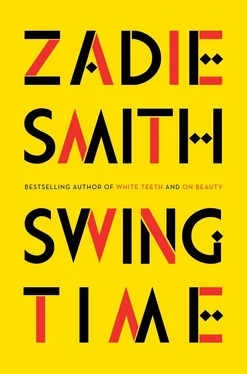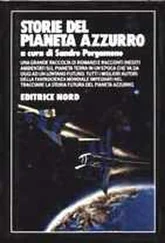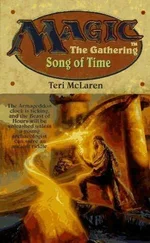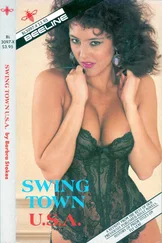• • •
The next day was a Saturday. Tracey left early for the matinee, but I didn’t work Saturdays. I went back to my father’s flat and spent the afternoon with him. I didn’t see the letter that day though it might already have been on the mat. I found it on Sunday morning: it had been pushed through my door and was addressed to me, handwritten, with a little food stain on the corner of one page, and I think of it as the last truly personal written letter I ever received, for even though Tracey had no computer, not yet, the revolution was happening all around us and soon enough the only paper addressed to me would come from banks, utilities or the government, with a little plastic window to warn me of the contents. This letter came with no warning — I hadn’t seen Tracey’s handwriting in years — and I opened it as I sat at my father’s table with my father sitting opposite me. “Who’s that from then?” he asked, and for a few lines I still didn’t know myself. Two minutes later the only question remaining was whether it was fact or fiction. It had to be fiction: to believe otherwise was to make everything in my present life impossible as well as destroying much of the life I had led up to this point. It was to allow Tracey to place a bomb under me and blow me to smithereens. I read it again, to make sure I had understood. She began by speaking of her duty, and of it being a horrible duty, and that she had asked and asked herself (“asked” spelled wrong) what to do and had felt she had no choice (“choice” spelled wrong.) She described Friday night as I, too, remembered it: walking up the street to my father’s, smoking a joint, up to the point where she went down the side return to let herself in via the kitchen, unsuccessfully. But here the timeline broke in two, into her reality and mine, or her fiction — as far as I was concerned — and my fact. In her version she walked round the back of my father’s flat, stood in the small gravel courtyard, and then, because the kitchen seemed to be locked, took two steps to the left and brought her nose right up to the back window, to my father’s bedroom window, the one in which I slept, cupped her hands upon the glass and looked in. There she saw my father, naked, on top of something, moving up and down, and at first she had naturally thought it was a woman, and if it had been a woman, or so she assured me, then she never would have mentioned it, it was none of her business or mine, but the fact was it was not a woman at all, it was a doll, human-sized, but inflated, and of very dark complexion—“like a golliwog,” she wrote — with a crescent of synthetic lamb’s-wool hair and a huge pair of bright red lips, red as blood. “You all right, love?” asked my father, across the table, as I held that comic, tragic, absurd, heartbreaking, hideous letter shaking in my hand. I said I was fine, took Tracey’s letter to the back courtyard, took out a lighter and set it on fire.
One
I didn’t set eyes on Tracey again for eight years. It was an unseasonably warm May evening, the night I went out with Daniel Kramer, a first date. He came to the city quarterly, and was one of Aimee’s favorites in the sense that he did not, by virtue of being handsome, meld entirely with all the other accountants and financial advisers and copyright lawyers she regularly consulted, and so in her mind had been granted things like a name, qualities like a “good aura” and a “New York sense of humor” and a few biographical details she had managed to recall. Originally from Queens. Attended Stuyvesant. Plays tennis. Trying to keep the arrangements as loose as possible, I had suggested to him that we go to Soho and “play it by ear,” but Aimee wanted us to come first to the house for a drink. It wasn’t common at all, this kind of casual, intimate invitation, but Kramer didn’t seem surprised or alarmed to receive it. The twenty minutes we were granted passed with no customer-like behavior. He admired the art — without overdoing it — listening politely as Aimee repeated all the things the dealer who sold the art to her had told her about the art when she bought it, and soon enough we were free, of Aimee, of the oppressive grandeur of that house, skipping down the back stairs, both a little giddy on good champagne, emerging on to the Brompton Road and into a warm, close night, muggy, threatening a storm. He wanted to take the long walk into town — we had vague plans to see what was on at the Curzon — but I was not a tourist and those were my salad days of impossible heels. I was about to look for a taxi when, for “fun,” he stepped off the curb and waved down a passing pedicab.
“She collects a lot of African art,” he said, as we climbed into the leopard-print seats — he was only making conversation, but primed against any hint of a customer, I cut him down: “Well, I don’t really know what you can mean by ‘African art.’”
He looked surprised by my tone but managed a neutral smile. He relied on Aimee’s business and I was an extension of Aimee.
“Most of what you saw,” I began in a tone better suited for a lecture hall, “is actually Augusta Savage. So Harlem. It’s where she lived when she first came to New York — I mean, Aimee. Of course, she’s a great supporter of the arts generally.”
Now Kramer looked bored. I was boring myself. We didn’t speak again until the bike stopped at the corner of Shaftesbury Avenue and Greek Street. As we pulled up at the curb we were surprised by the existence of a Bangladeshi boy, whose independent reality we had, up to that point, entirely forgotten, but who had undeniably brought us this far, and now turned round on his bike seat, his face soaked with sweat, hardly able to explain, through gasps, how much this form of human toil cost per minute. There was nothing we wanted to see at the cinema. In a slightly tense mood, our clothes sticking to us in the heat, we wandered toward Piccadilly Circus, without knowing which bar we were heading for, or whether we should eat instead, both already considering the evening a failure, looking straight ahead and confronted, every few steps, with the giant playbills of the theaters. It was in front of one of these, a little way down, that I stopped dead. A performance of the musical Showboat , a shot of the “Negro chorus”: head-handkerchiefs, rolled-up trousers, aprons and work skirts, but all done tastefully, carefully, “authentically,” with no hint of Mammy or Uncle Ben about it. And the girl closest to the camera, her mouth open wide in song, with one arm stretched high above her head, clutching a broom — the very picture of kinetic joy — was Tracey. Kramer came up behind me to peer over my shoulder. I pointed a finger at Tracey’s upturned nose, as Tracey herself used to point at a dancer’s face as it passed across our TV screens.
“I know her!”
“Oh, yeah?”
“I know her really well.”
He tapped a cigarette out of a packet, lit it and looked the theater up and down.
“Well… you wanna go see it?”
“But you don’t like musicals, do you? Nobody serious does.”
He shrugged. “I’m in London, it’s a show. That’s what you’re meant to do in London, isn’t it? Go see a show?”
He passed me his cigarette, pushed open the heavy doors and headed to the box office. It all of a sudden seemed very romantic and coincidental and well timed and I had a ridiculous girlish narrative running in my head, of a future moment in which I would be explaining to Tracey — backstage somewhere in some sad regional theater, as she pulled on a pair of tired old fishnets — that the very moment I realized I’d met my love, the moment I came into my true happiness, was the same moment I happened to spot her, quite by chance, in that very small role she’d had, back in the day, in the chorus of Showboat , all those years and years ago…
Читать дальше












